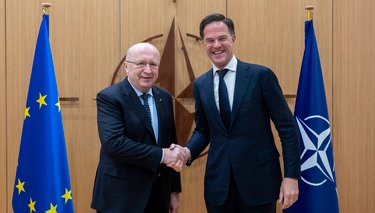Malaysia Ties Fortunes to Singapore as US-China Tensions Mount

In an increasingly volatile global environment shaped by the intensifying trade war between the US and China, Malaysia is repositioning itself to navigate these turbulent waters. In an effort to safeguard its economic stability, Malaysia is focusing on strengthening ties with Singapore—its key regional partner. As the trade war continues to impact global markets, Malaysia sees Singapore as an essential ally to buffer the economic shocks and take advantage of new opportunities in the face of uncertainty.
Historically, the relationship between Malaysia and Singapore has been a combination of economic cooperation and occasional political tension. However, as the global political landscape shifts, both countries have recognized the need to collaborate more closely. The growing instability driven by the US-China trade war and other geopolitical challenges has created a perfect storm that requires more robust regional partnerships.
Singapore, known for its advanced financial infrastructure and trade-oriented economy, has long been a global financial hub. Malaysia, on the other hand, offers vast natural resources and a growing digital economy, which presents ample opportunities for economic growth. By reinforcing their economic cooperation, both nations can create a stronger, more resilient front in navigating global uncertainties.
The Singapore-Malaysia economic partnership has been further bolstered by their shared focus on technological innovation, infrastructure development, and sustainability. Both nations are committed to advancing digital economies, creating tech-driven job opportunities, and promoting sustainable business practices, all of which will help them weather the impact of the US-China tensions.
The ongoing trade war between the US and China is a pivotal event that continues to reshape the global economy. As the two largest economies in the world impose tariffs on each other and challenge each other’s global economic dominance, smaller nations like Malaysia are feeling the effects. Global supply chains have been disrupted, tariffs on a variety of goods have increased, and markets have fluctuated dramatically.
For Malaysia, a country heavily reliant on exports, particularly electronics, palm oil, and machinery, these trade tensions have led to uncertainty. As China and the US engage in a tug-of-war, countries like Malaysia, caught between the two powers, face mounting pressure to adapt. Malaysia has turned to its strong, longstanding economic ties with Singapore to buffer itself against the economic fallout from these tensions.
Both nations are also looking for ways to diversify their markets and reduce their exposure to the escalating trade war between the US and China. By investing in other global markets, increasing trade within ASEAN, and deepening their economic integration, Malaysia and Singapore hope to create more stable economic foundations and reduce reliance on the US and China.
The strengthening of Malaysia-Singapore ties isn’t just about political maneuvering; it’s about practical economic cooperation that benefits both nations in tangible ways. Below are key areas where Malaysia and Singapore are doubling down on their partnership:
Singapore’s financial sector is one of the most developed and stable in the world, and Malaysia is keen to harness its expertise. The two countries have been working together to improve financial market integration, with initiatives that encourage investment and capital flow across borders. As part of their efforts to create a more resilient economy, both countries have also increased cooperation in areas like digital finance, fintech, and blockchain technology. These efforts aim to position both nations as global leaders in financial innovation.
Singapore’s emphasis on technology-driven growth has made it a leader in the global tech space, and Malaysia is eager to tap into that expertise. The digital economy has become a priority for both countries, with initiatives in areas like e-commerce, cloud computing, and artificial intelligence gaining momentum. In particular, Singapore has been a hub for startup incubators, tech accelerators, and digital platforms, making it an ideal partner for Malaysia as it seeks to boost its own digital infrastructure and innovation ecosystem.
One of the most prominent areas of cooperation between Malaysia and Singapore is in infrastructure development. A notable project is the Malaysia-Singapore High-Speed Rail (HSR) project, which aims to improve transportation connectivity between the two countries. The HSR will not only make travel easier but will also increase trade, tourism, and regional cooperation. Similarly, both nations are investing in port development and logistics to improve supply chain efficiency, which is crucial as they seek to mitigate disruptions from the ongoing US-China trade war.
As part of their commitment to sustainability, Malaysia and Singapore have been working together to promote green energy and sustainable practices. Malaysia’s rich natural resources, such as solar energy and palm oil waste, can complement Singapore’s expertise in clean technologies. Joint ventures in renewable energy, green construction, and environmental management are on the rise as both countries seek to reduce their carbon footprints and transition toward more sustainable economic models.
Malaysia, under the leadership of Prime Minister Anwar Ibrahim, has long emphasized the importance of neutrality in its foreign policy. However, as the geopolitical rivalry between the US and China deepens, Malaysia is finding itself in an increasingly difficult position. While the country is eager to maintain strong relations with both global superpowers, it is also mindful of the risks posed by taking sides.
Malaysia’s relationship with Singapore is integral to its diplomatic strategy. Singapore’s expertise in international diplomacy and its status as a global financial center gives Malaysia a platform to amplify its voice in global discussions, particularly on matters of trade, security, and regional stability. By aligning more closely with Singapore, Malaysia hopes to gain access to global decision-making platforms and maintain its sovereignty amid the growing influence of the US and China in the Asia-Pacific region.
As the global political and economic landscape becomes more uncertain, Malaysia’s growing partnership with Singapore could prove to be a key asset in navigating the complex challenges ahead. The US-China trade war, in particular, is far from over, and both nations must continue to explore new ways to collaborate in order to mitigate the risks posed by the escalating tensions.
By continuing to deepen ties with Singapore, Malaysia is not only positioning itself to withstand the short-term impacts of the trade war but also ensuring its long-term economic resilience. This partnership could serve as a model for other countries in ASEAN, showcasing the importance of regional cooperation in times of global instability.
As Malaysia and Singapore work together to strengthen their economic ties, they are sending a clear message: the future lies in closer collaboration, innovation, and the pursuit of sustainable growth. The ongoing efforts to foster economic integration and technological development will likely pay dividends in the years to come, ensuring that both nations remain competitive on the global stage.
As the world’s economic and political landscape evolves, it is critical to stay informed on the latest trends, developments, and expert analyses. Innovation Times provides in-depth coverage of global news, technology, and business insights, including how regional partnerships like that of Malaysia and Singapore can reshape global markets.
🔗 Sign up today at www.innovationtimes to stay ahead of the curve with expert commentary on innovation, business trends, and the global economy.









